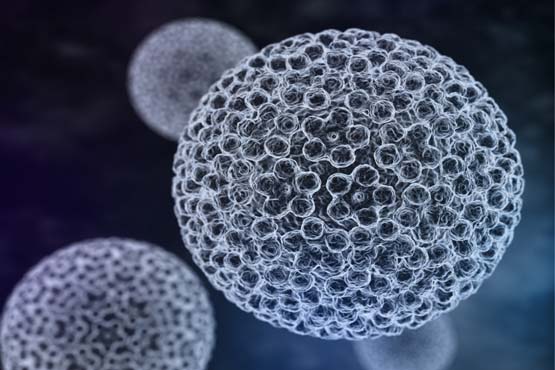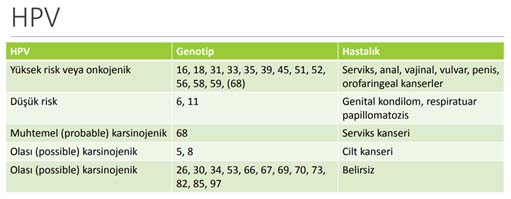Structure of HPV

5% of all cancers with a viral or bacterial cause worldwide are known to be caused by HPV. HPV usually causes the formation of warts within 2 to 3 months after the initial infection in the body, but this period may differ from person to person. HPV is also colloquially known as wart virus. Although warts often appear in the genital area, they can be observed anywhere in the body. Warts in the genital area called genital warts in the medical literature are colloquially known as inguinal warts.
75% of all sexually active women are estimated to be at risk of getting infected with the virus that causes warts, i.e. acquiring HPV infection at some point in their life. Being infected with the virus that causes warts does not mean that genital or inguinal warts will develop. Sometimes getting infected with HPV does not cause warts. The pleasing thing is that 80-90% of human papilloma viruses (HPV) are destroyed by defense cells within 1 to 2 years after the initial infection in the body. Very little amount of them manage to remain hidden in the body, which then get activated in cases of weakened immune system and can cause the formation of genital warts and cellular proliferation.
After the initial infection with the HPV types that cause cancer (such as type 16 and type 18), the cancer development takes such a long time as 10 to 15 years. Some types of HPV only cause warts, while some others cause both genital warts and cancer.

<>
Although HPV types that cause warts normally do not cause cancer, the possibility of multiple HPV transmission makes it necessary to the identify the HPV type(s), to see whether the virus(es) is/are high-risk or low-risk HPV.
We often find more than one type of wart virus in the samples that we take from our patients when they apply to our clinic with complaints of inguinal and genital warts.
Types of wart viruses that cause the formation of warts in parts of the body other than the genital area may incidentally show symptoms in the form of inguinal warts. In such a case, when we identify the type of the wart virus, we may find a type different from the 40 types that infect the genital area. The types other than the types of wart virus that infect the genital area (results are reported universally) are hardly likely to cause cancer.
This article may also interest you

HPV (Human Papilloma Virus) is a highly contagious and insidious microorganism that causes genital warts and cervical cancer.
Read more

 TR
TR SQ
SQ